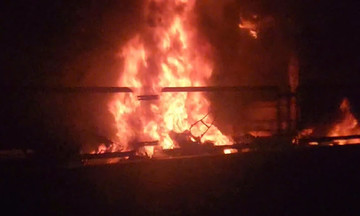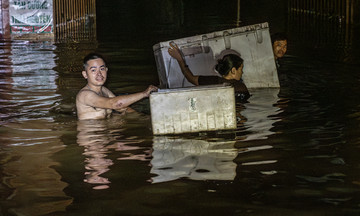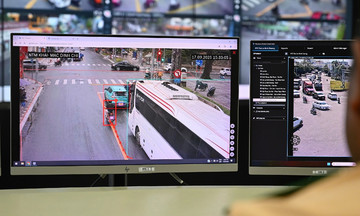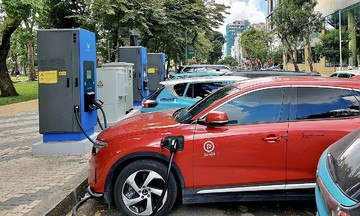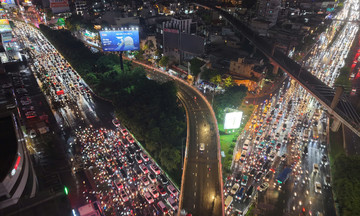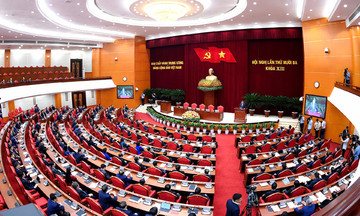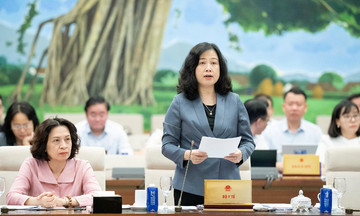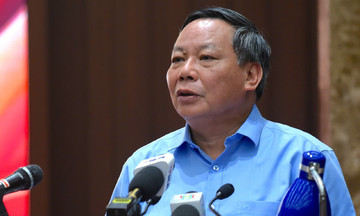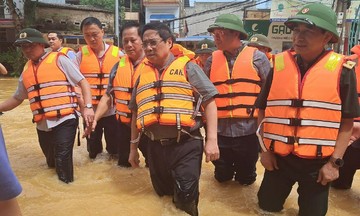Party Secretary Tran Luu Quang raised the issue at the 4th (expanded) City Party Committee meeting on the morning of 15/9, addressing the tens of thousands of vacant resettlement apartments across the city.
"This is causing significant waste, especially with the annual budget allocation of around 100 billion VND for maintenance," Quang said, urging relevant departments to address the situation immediately.
According to the Party Secretary, the city should prioritize housing for officials from provinces merged into Ho Chi Minh City to help them settle and work effectively. However, relevant departments need clear policies to prevent officials from resigning after receiving housing, causing losses for the city.
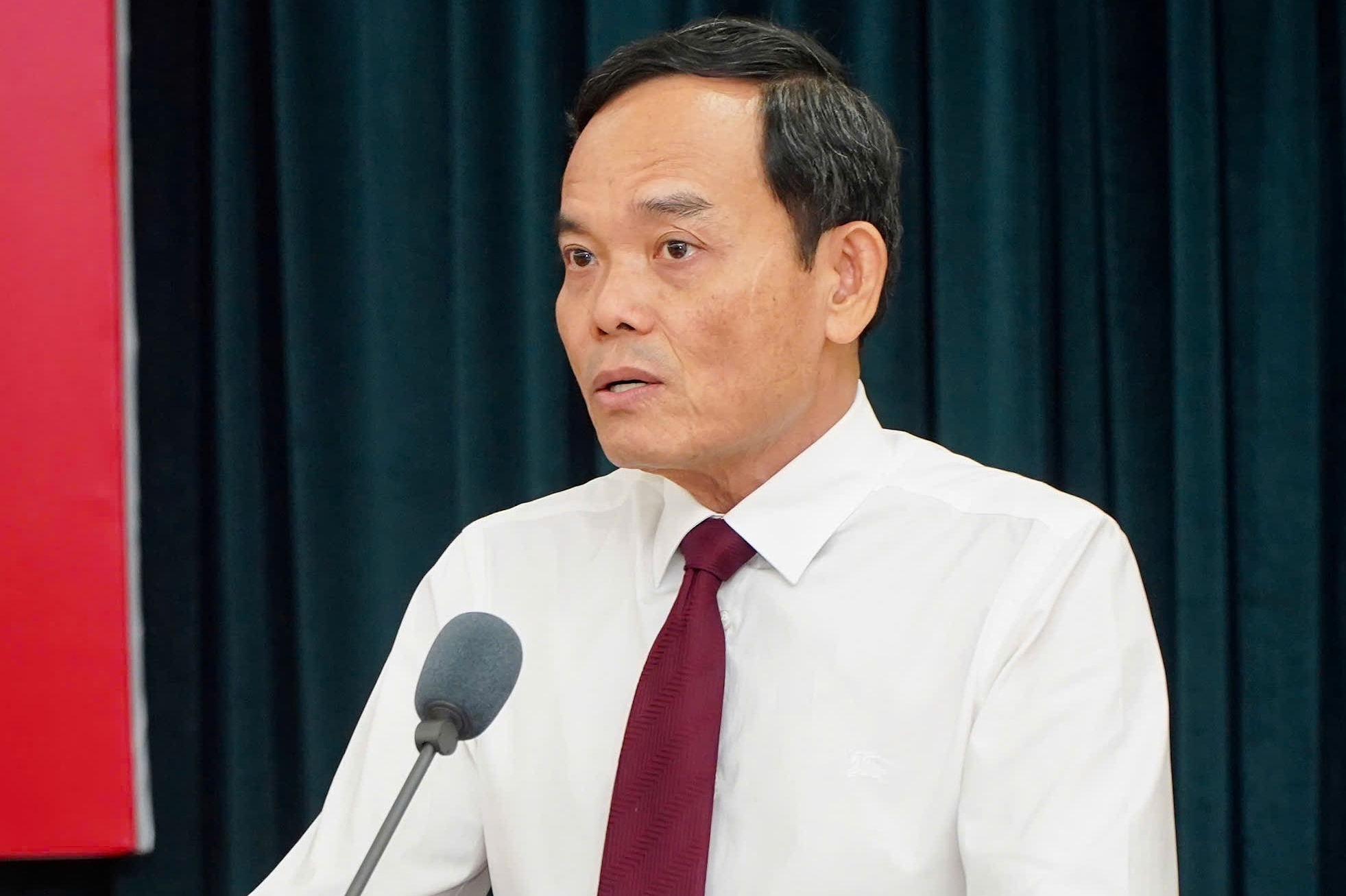 |
Ho Chi Minh City Party Secretary Tran Luu Quang speaking at the meeting on the morning of 15/9. Photo: An Phuong |
Ho Chi Minh City Party Secretary Tran Luu Quang speaking at the meeting on the morning of 15/9. Photo: An Phuong
Additionally, Quang requested that the resettlement housing fund be used for residents displaced by city development projects, such as clearing dilapidated houses along canals in districts 10, 8, and former district 2.
According to the Ho Chi Minh City Department of Construction, these resettlement apartments are scattered across districts and the former Thu Duc city. Areas with a high number of vacant apartments include the Binh Khanh resettlement area, part of the 12,500 Thu Thiem resettlement apartment program; followed by the Vinh Loc B resettlement area; and former districts 12, 7, and Binh Thanh, each with several hundred vacant units. The city has unsuccessfully attempted to auction nearly 4,000 resettlement apartments in Thu Thiem at least four times and plans another auction later this year.
Following the merger with Binh Duong and Ba Ria-Vung Tau, Ho Chi Minh City has over 1,400 officials needing official housing, while the existing supply is insufficient, and new construction takes time. Currently, the city provides a monthly allowance of 4.8-10 million VND to support commuting officials.
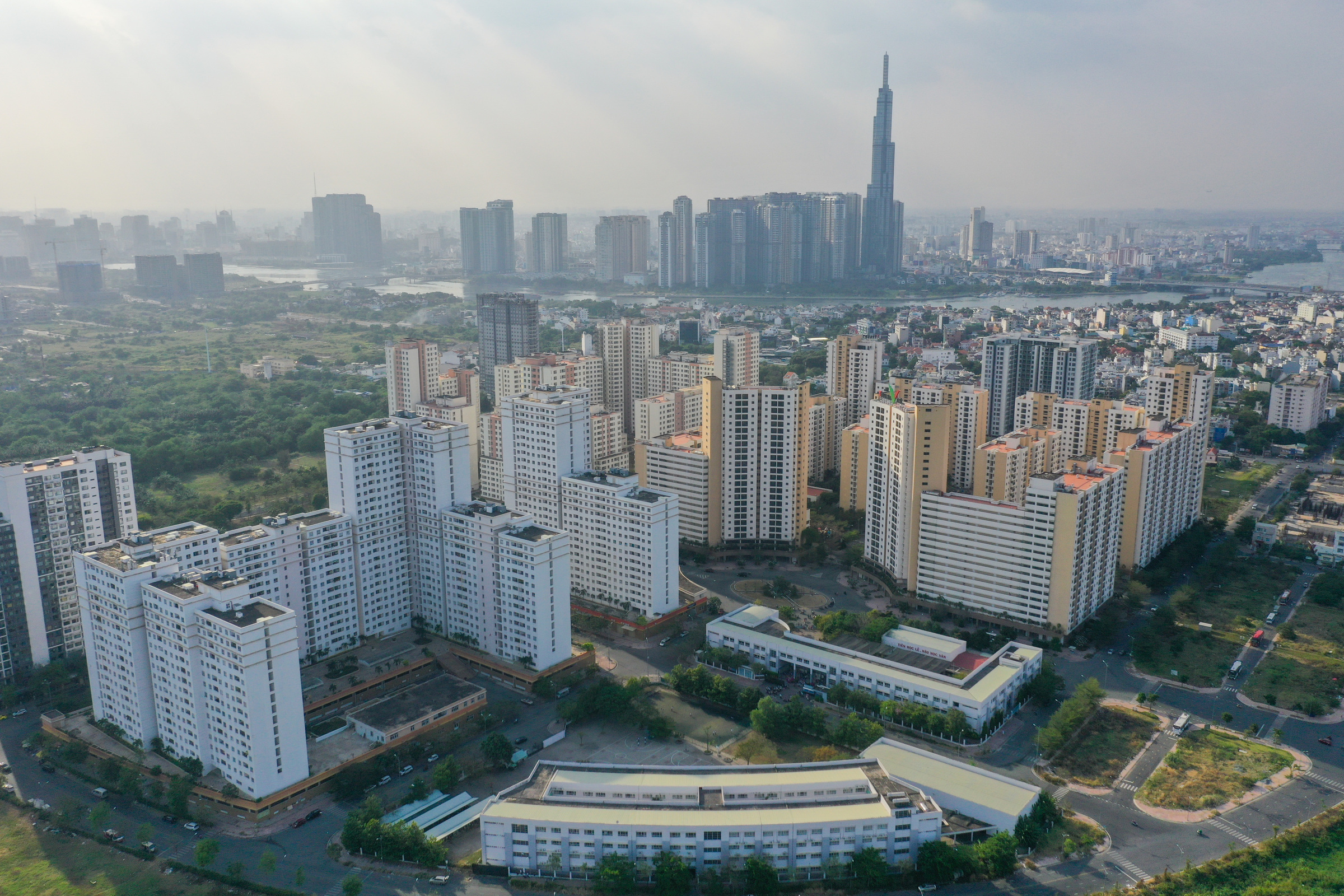 |
Binh Khanh resettlement area in Thu Thiem New Urban Area. Photo: Quynh Tran |
Binh Khanh resettlement area in Thu Thiem New Urban Area. Photo: Quynh Tran
At the meeting on 15/9, Secretary Tran Luu Quang stated that the city must address several socio-economic issues in the final three months of the year. Regarding economic growth, he outlined two targets: over 10% as concluded by the City Party Committee and People's Council, and over 8.5% assigned by the central government. "The meeting did not finalize a specific figure nor lower the target, but it requires efforts to achieve the highest possible growth rate," he said.
He also urged faster disbursement of public investment funds, currently at about 44% of the allocated capital. A dedicated meeting on disbursement will be held on 16/9, which he will attend to help resolve issues. According to Quang, many commune and ward officials face difficulties and pressure handling multi-billion VND dossiers despite lacking experience in infrastructure and urban development at the district level.
Regarding public land management, Quang requested departments and districts to review and prioritize allocation for healthcare, education, infrastructure, and public works before considering auctions or transfers.
Regarding Resolution 98 on special mechanisms, the Party Secretary urged completion of the revised dossier for submission to the National Assembly during the October session. Delays would render the special mechanisms meaningless as they expire in 6/2027. Updates are needed for provisions such as the Cai Mep Ha free trade zone, mechanisms for attracting strategic investors, and the retained budget ratio.
According to Quang, after 2.5 years of implementation, many mechanisms under Resolution 98 requested by the city have not been or cannot be implemented, requiring rectification. "If we request mechanisms but don't use them, no one will grant them in the future, making it difficult to justify new requests," he said.
Le Tuyet



